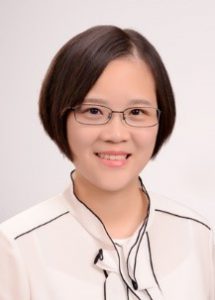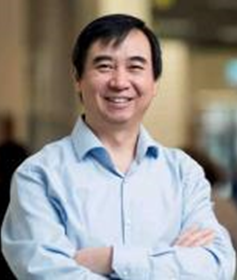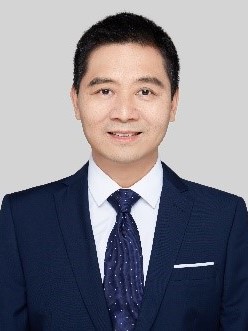Title: DNA data storage and the its application
Speaker: Di Liu, Wuhan Institute of Virology, Chinese Academy of Sciences
Biography:
Di Liu received his Doctoral’s degrees of bioinformatics from Peking University. Currrently, he is a professor and principle investigator of Wuhan Institute of Virology, Chinese Academy of Sciences. His research area includes virus genomics & evolution, and bioinformatics. Since 2018, his group began the study of DNA data storage and was supported by the National Key R&D Program. Dr. Liu has published a series of papers on Nature, Lancet, New England Journal of Medicine, Cell Metabolisms, etc.
Title:Nanopore techniques for single biopolymer sensing and sequencing
Speaker: Yi-Lun Ying, Nanjing University
Biography:
Dr. Yi-Lun Ying studied chemistry and obtained Ph.D in Analytical Chemistry from East China University of Science and Technology (ECUST). After a doctoral exchange study in the University of Birmingham (2014), Dr. Ying carried out her postdoctoral research on nanopore electrochemical biosensors at ECUST. Since 2016, she has started her independent work. In 2019, she was promoted to professor at Nanjing University. Prof. Ying’s team is currently developing advanced nanopore instrumentations for single protein sequencing and data storage. She has been recognized by several awards and honors, including the L’Oreal-UNESCO International Rising Talents (2016), RSC Analyst Emerging Investigator Lectureship (2020) and Young Chemists Awards of Chinese Chemical Society(2020). She currently serves as an Editor for Results in Chemistry, Editorial Board Member for ACS Measurement Science Au and ChemElectroChem, and Advisory Board Member for Analyst.
Title:Evolutionary Computation for Feature Selection and Dimensionality Reduction
Speaker: Mengjie Zhang, Victoria University of Wellington
Biography:
Mengjie Zhang is a Fellow of Royal Society of New Zealand, a Fellow of Engineering New Zealand, a Fellow of IEEE, an IEEE Distinguished Lecturer, currently Professor of Computer Science at Victoria University of Wellington, where he heads the interdisciplinary Evolutionary Computation and Machine Learning Research Group. He is also the Associate Dean (Research and Innovation) in the Faculty of Engineering, and leads the Data Science and Artificial Intelligence Initiative at the University.
His research is mainly focused on artificial intelligence (AI), machine learning and big data, particularly in evolutionary computation and learning (using genetic programming, particle swarm optimisation and learning classifier systems), feature selection/construction and big dimensionality reduction, computer vision and image processing, job shop scheduling and resource allocation, multi-objective optimisation, classification with unbalanced data and missing data, and evolutionary deep learning and transfer learning. Prof Zhang has published over 800 research papers in refereed international journals and conferences in these areas. He has been serving as an associated editor or editorial board member for over ten international journals, and as a reviewer of over 30 international journals. Since 2007, he has been listed as one of the top ten (currently No. 4) world genetic programming researchers by the GP bibliography.
Title:A formal look at membrane computing
Speaker: Sergey Verlan, University of Paris Est Créteil
Biography:
Dr. hab. Sergey Verlan received his PhD in Computer Science at the University of Metz, France (2004). He obtained a habilitation in Computer Science at the University of Paris Est Créteil (2010). Currently he is a full professor at the University of Paris Est Créteil (France). His research interests belong to the area of theoretical computer science and natural computing. He has expertise in the area of formal language theory, DNA computing, membrane computing, modeling of biological systems and hardware design. He is particularly interested in the universality problem and provided several universal constructions which are the smallest known for the corresponding classes. He also introduced the formal framework for P systems that allows to explain, compare and extend different variants of P systems. He has more than 100 articles published in scientific journals and international conference proceedings. He edited 6 special journal issues and contributed to 13 book chapters.
Title:Information storage in DNA
Speaker: Junbiao Dai, Institute of Synthetic Biology, Shenzhen Institute of Advanced Sciences, Chinese Academy of Sciences
Biography:
Professor Junbiao Dai is currently the deputy director of Institute of Synthetic Biology (iSynBio), Shenzhen Institute of Advanced Sciences (SIAT), Chinese Academy of Sciences (CAS). He received his Bachelor degree from Nanjing University in 1997, Master of Science in Biology from Tsinghua University in 2000 and PhD in Molecular, Cellular and Developmental Biology from Iowa State University in 2006. He was a post-doctoral fellow at the Johns Hopkins University School of Medicine before joining the faculty in School of Life Sciences at Tsinghua University in 2011.
His research interests lie in synthetic biology using different model organisms, focusing on development of new technologies for genes synthesis, assembly and synthetic genomics. He’s one of the key members in synthetic yeast consortium (Sc2.0) and has finished the synthesis of the largest yeast chromosome XII. Dr. Dai have published many peer-reviewed articles in prestigious journals such as Cell, Nature, Science, Molecular Cell, PNAS and Nucleic Acids Res and hold eight patents. He is the winner of Albert Lehninger Research Award from Johns Hopkins University, Newton Advanced Fellowship and C.C. Tan Life Science Innovation Award. In 2017, He was awarded the National Science Fund for Distinguished Young Scholars.